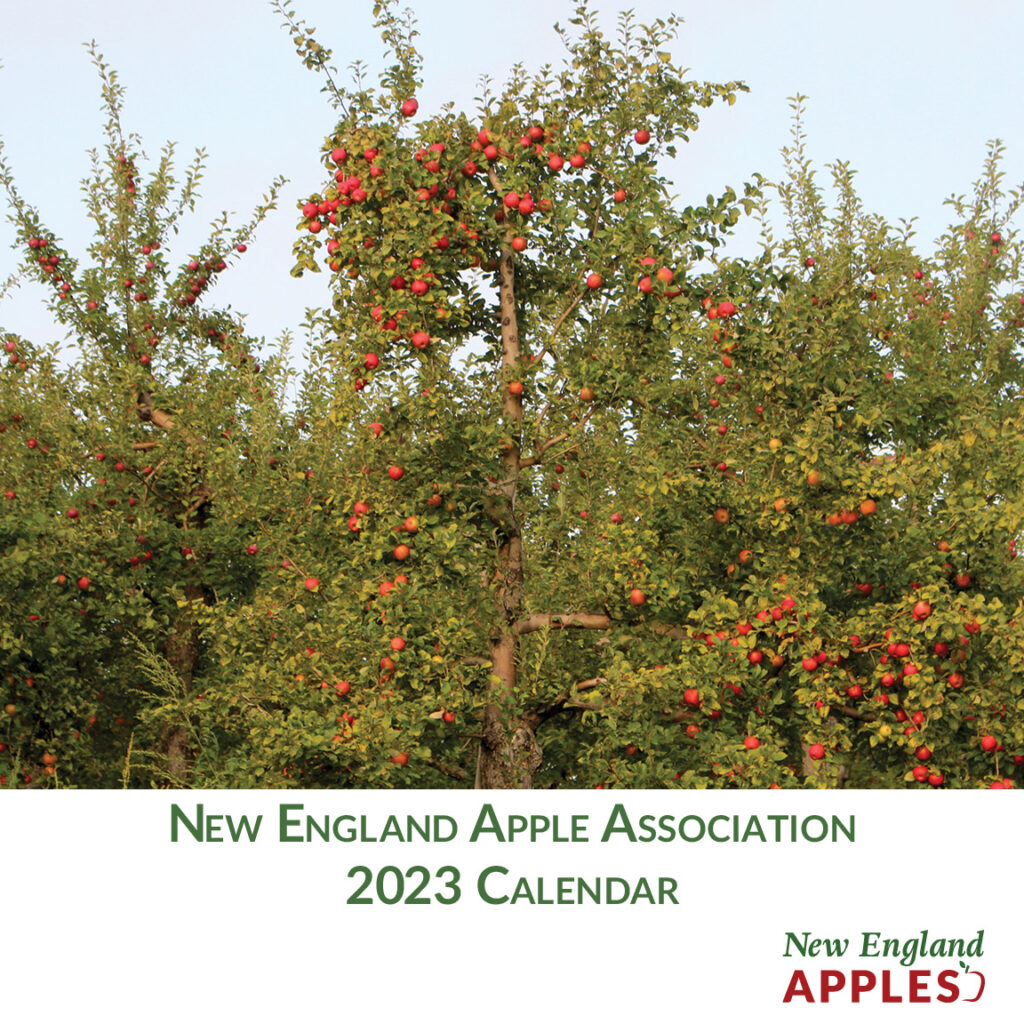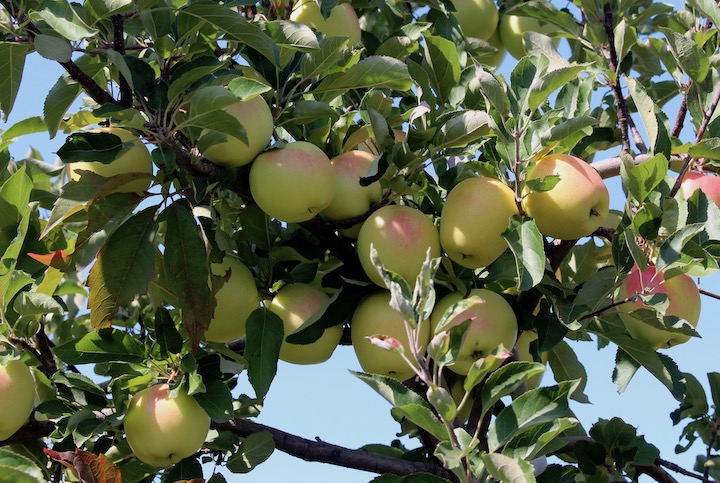
MOST PEOPLE think “red” when they think apple. The vast majority of apples feature the color, after all, and popular cultural images, from Snow White to the Wizard of Oz to the Big Apple, feature apples that are mostly red.
Red is embedded in names like CrimsonCrisp, Idared, and Red Delicious.
There are also RubyMac, Winesap, Burgundy, and Cripps Pink (aka Pink Lady).
But this kaleidoscopic fruit comes in nearly every hue, evident in names like Cox’s Orange Pippin, Rhode Island Greening, Blue Pearmain, and Black Oxford.
There are greenish or copper-colored russets like Pomme Grise and Roxbury Russet.
Even mostly red apples are striped (Cortland), streaked (Gravenstein), or spotted (McIntosh) in shades of green or yellow.
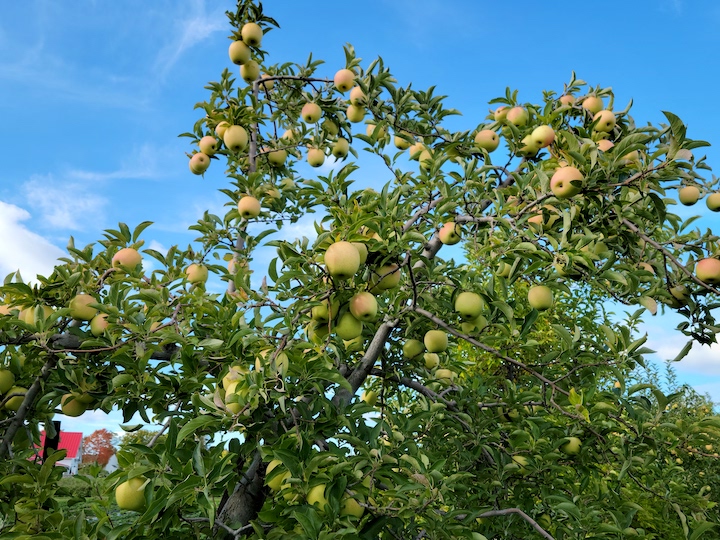
Click on the name of any apple to see and read more about it.
* * *
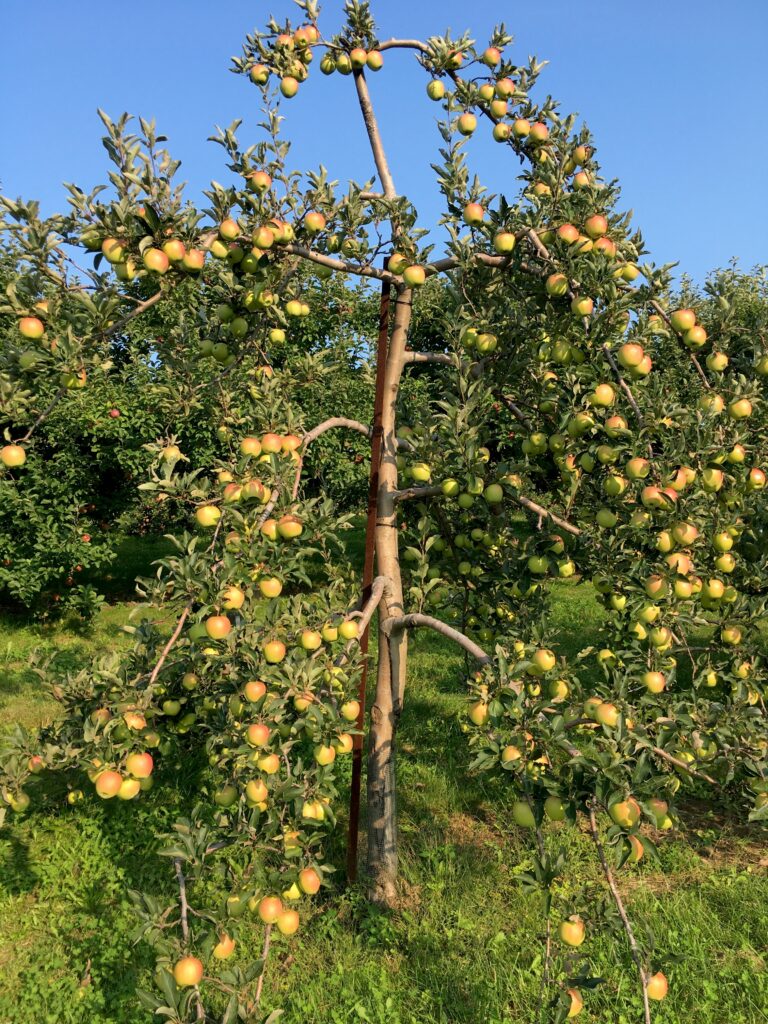
A NUMBER OF APPLES are mostly yellow or golden. Many boast strong apple flavor, and tend to be on the sweet side.
Many of these have appeared within the past century, like early season varieties Ginger Gold (1969), Pristine (1975), and Silken (1982);
mid- to late-season Blushing Golden (1959), GoldRush (1973), and Blondee (1998); or
two outstanding late-season apples from Japan, Mutsu (aka Crispin, 1930), and Shizuka (1969).
Two notable exceptions are the ancient ribbed heirloom Calville Blanc d’Hiver (1500s), still a popular cider variety today, and Golden Delicious (1890), one of the most widely grown apples in the world.
* * *
GOLDEN APPLES figure prominently in antiquity, in fact, symbolizing beauty and desire over centuries and across cultures.
Golden apples appear in Bulgarian, German, Romanian, and Russian fairy tales. In Norse mythology, golden apples grant immortal life to the gods.
Golden apples are at the center of famous Greek myths about beauty and love — and treachery that led to war:
Eris, the goddess of discord, outraged that she was not invited to the wedding of King Peleus and the sea-nymph Thetis, throws a golden apple inscribed “for the fairest” before the goddesses Aphrodite, Athena, and Hera.
The three argue over who should get the apple. Zeus, ruler of Olympus, is unwilling to decide. Instead, he directs Paris, a Trojan shepherd boy, to answer the question.
The goddesses attempt to bribe Paris. Hera, queen of Olympus, tells Paris she will grant him power to rule the world.
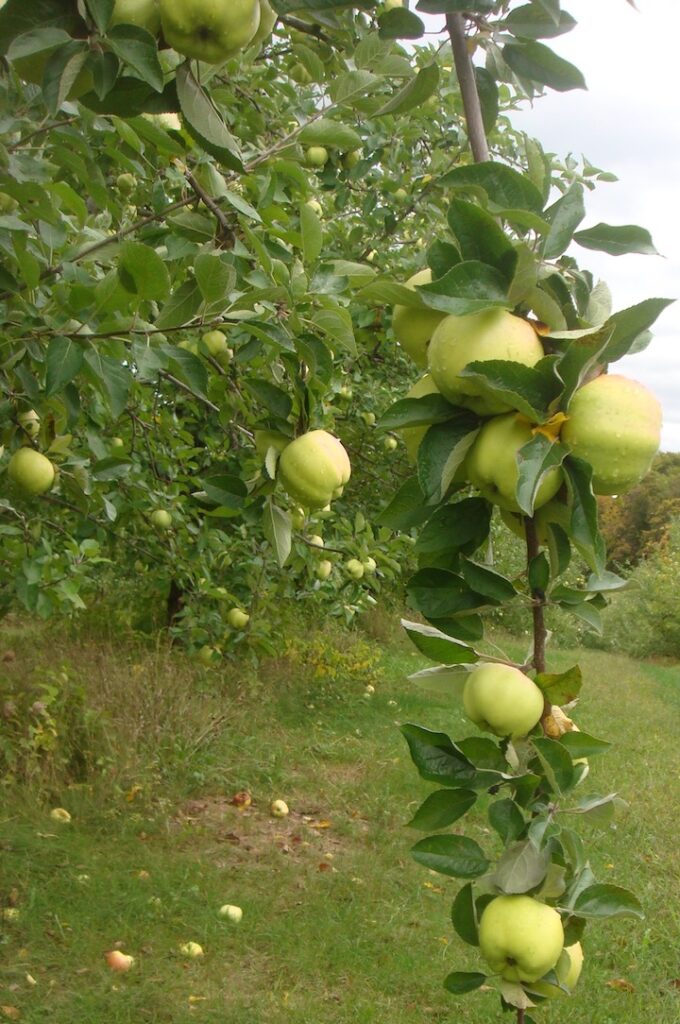
Athena, goddess of war and wisdom, promises to make him a great strategist in battle.
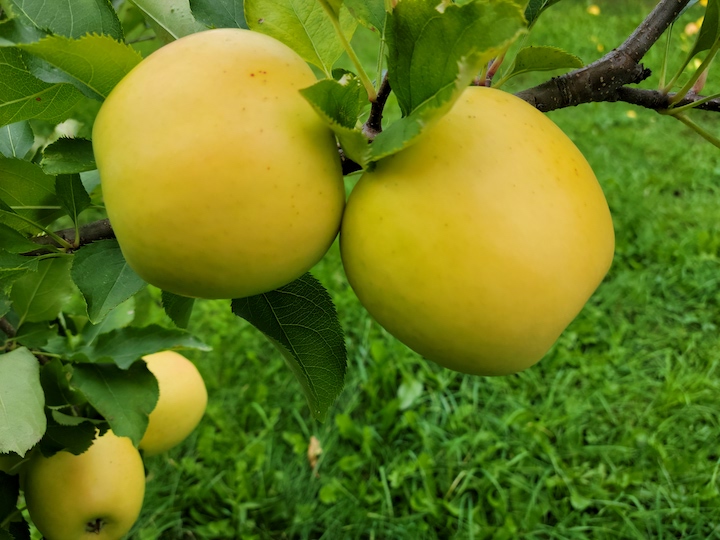
Aphrodite, goddess of love, trumps them both, offering Paris the love of Helen, the most beautiful woman in the world (never mind that Helen is married to the king of Sparta).
Paris awards the golden apple to Aphrodite, and she helps him elope with Helen to Troy, launching the Trojan War.
* * *
APHRODITE USES GOLDEN APPLES again to help Melanion marry the gifted athlete Atalanta.
Atalanta pledged to marry only if a suitor beat her in a foot race.
At Aphrodite’s instruction, as Melanion and Atalanta race, he throws a golden apple ahead of her whenever he falls behind.
Each time, Atalanta stops to pick the apple up, and eventually loses the race.
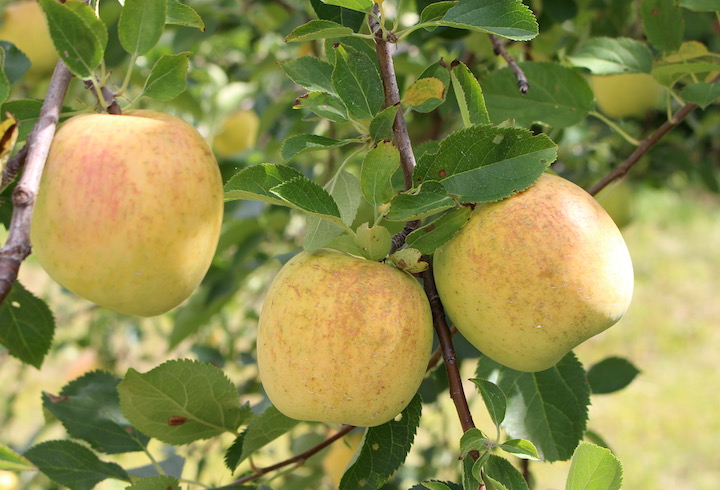
* * *
THE 2023 NEW ENGLAND APPLES WALL CALENDAR is now available.
Each month and the front and back covers feature a different New England orchard, 14 in all!
Every month includes a health tip and a photograph and description of a different apple variety grown in New England.
A list of some of New England’s finest apple orchards, with contact information, appears inside the back cover.
Order yours now by sending $10 to: New England Apple Calendar, PO Box 41, Hatfield, MA 01038
